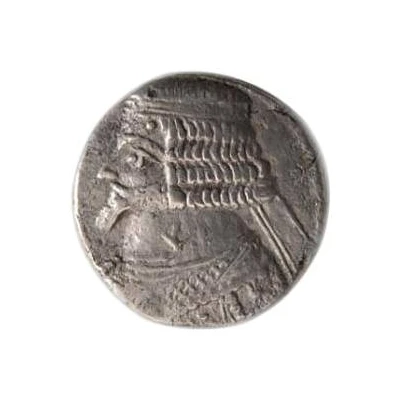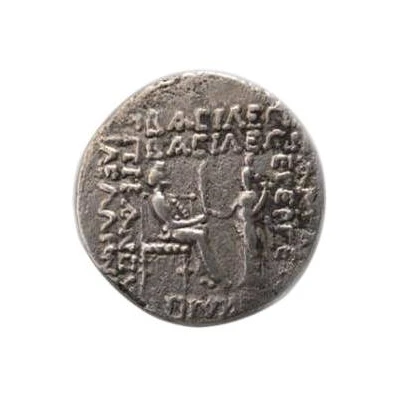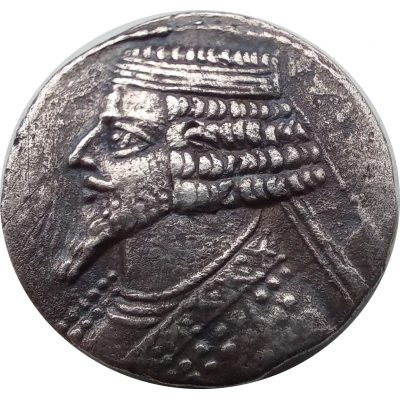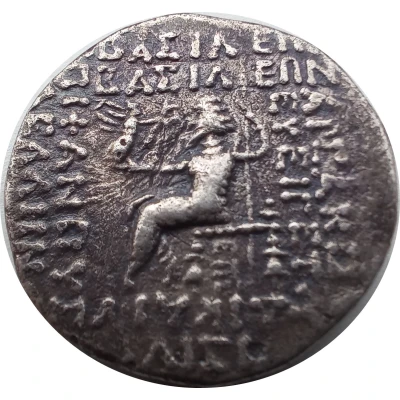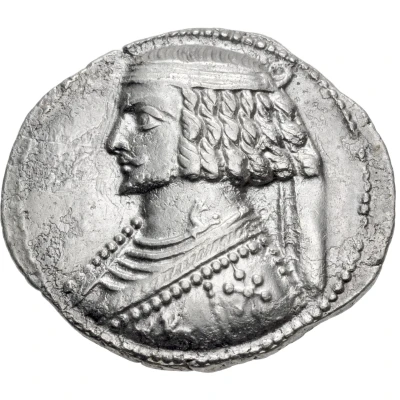
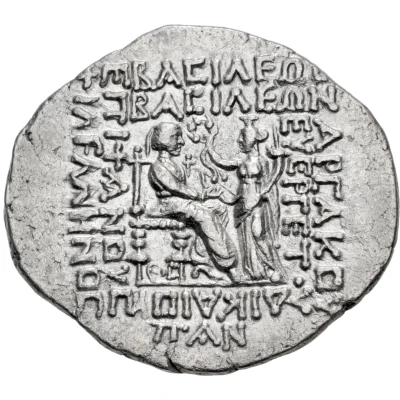

© samei (CC BY)
Tetradrachm - Phraates IV 275 37 BC
275 (37 BC) year| Silver | 14.28 g | 31 mm |
| Issuer | Parthian Empire (Parthian Empire (247 BC - 224 AD)) |
|---|---|
| King | Phraates IV (38 BC - 2 BC) |
| Type | Standard circulation coin |
| Year | 275 (37 BC) |
| Calendar | Seleucid era |
| Value | Tetradrachm (4) |
| Currency | Drachm (247 BC-224 AD) |
| Composition | Silver |
| Weight | 14.28 g |
| Diameter | 31 mm |
| Thickness | 12 mm |
| Shape | Round (irregular) |
| Technique | Hammered |
| Orientation | Coin alignment ↑↓ |
| Demonetized | Yes |
| Updated | 2024-10-10 |
| Numista | N#371801 |
|---|---|
| Rarity index | 100% |
Reverse
Phraates seated right on throne, Tyche standing left before him, presenting diadem and holding cornucopia; year below throne, month in exergue
Dated Panemos SE 275 (June 37 BC).
Interesting fact
One interesting fact about the Tetradrachm - Phraates IV 275 (37 BC) coin from the Parthian Empire is that it features a unique blend of Iranian and Hellenistic influences in its design. The coin's obverse side depicts a portrait of Phraates IV, the ruling king at the time, wearing a traditional Parthian headdress and a beard, while the reverse side shows a stylized representation of the ancient Persian goddess Anahita, who was revered as a symbol of fertility and prosperity. This fusion of cultural elements reflects the complex cultural exchange that occurred during the Parthian Empire's history, which spanned across present-day Iran, Armenia, and parts of Turkey and Iraq.
